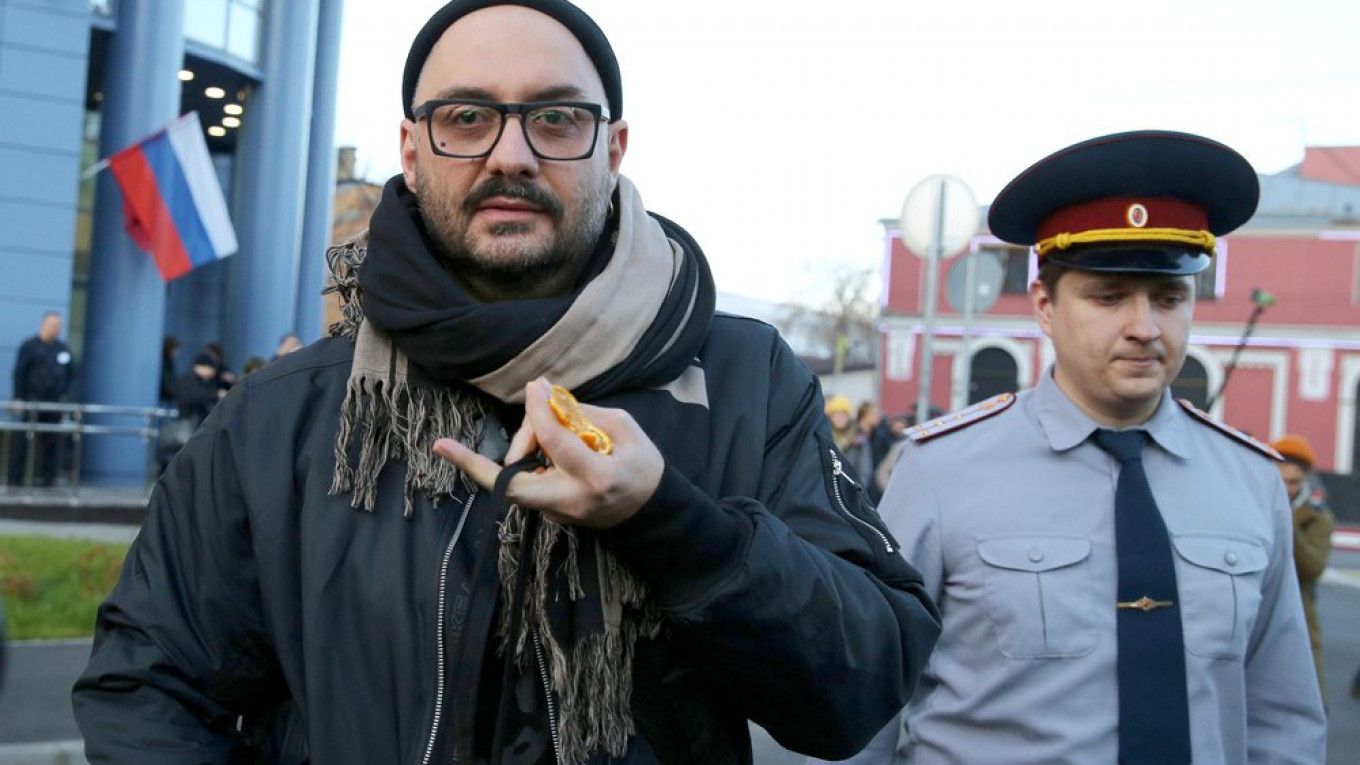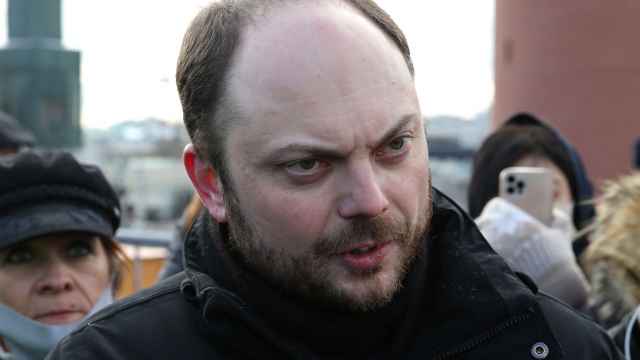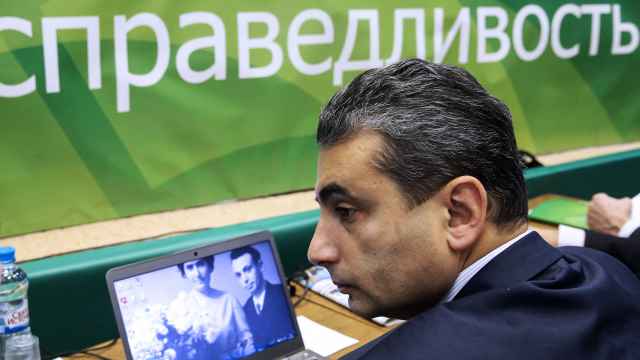“Today is not a day, but an extravaganza: Moscow rejoices!” — thus reads a 1953 quote by Russia's famous poet Alexander Raskin, marking the beginning of the period commonly known as the thaw.
Though it isn’t a completely accurate analogy — the quote goes on to mention the opening of GUM and the death of NKVD chief Lavrentiy Beria — this week, the Moscow artistic crowd once again had reason to rejoice.
On April 8th, the Moscow Court overturned a decision extending Kiril Serebrennikov’s house arrest. Minutes after the court’s verdict, social media was flooded with the same joyful message: he’s free!
Serebrennikov, the artistic director of the Gogol Center and one of Russia’s leading artistic minds, has been accused of embezzling funds allocated for the “Platforma Project,” which was produced in tandem with the Seventh Studio theater company.
Together with Yury Itin (the former director of the Seventh Studio company) and Sofia Apfelbaum (youth theater director), Serebrennikov is still subject to travel restrictions, but is now finally allowed to return to work.
Though really, during his period of house arrest Serebrennikov never stopped working at all: after his arrest on May 23, 2017 Serebrennikov has produced two plays at the Gogol Center (“Little Tragedies,” which was nominated for a Golden Mask award, Russia’s national theatre awards), the ballet “Nureyev” at the Bolshoi theater (also nominated for a Golden Mask award) and the film “Summer,” which was shown at the Cannes Film Festival.
Various officials, who attended many of Serebrennikov’s high-profile premiers, claimed they have nothing against contemporary art, and that it’s up to the court to figure out what’s going on.
The court proceedings themselves often felt like a Serebrennikov play — both journalists and figures from the theater world attended the proceedings at various courts as if attending premieres. They went in hoping for a miracle and each time left with baffled expressions on their faces. There were no miracles.
All of the defense’s arguments were quickly dismissed and the proceedings became more and more reminiscent of an absurdist theater.
The only sigh of relief came when Aleksey Malobrodsky, the former producer of Seventh Studio, was transferred from a detention center to house arrest. This was a small victory for humanity: at the time, Malobrodsky was suffering from serious health problems.
Now, there has been a small victory of common sense over repressive logic.
After all, there’s no way that Serebrennikov, Itin and Apfelbaum can flee the country — they don’t have international passports — and they can’t in any way influence witnesses who have already been questioned. What was the point of extending their house arrest?
And then, at last, one of the higher-ups came to his senses and said: well, all right. Enough is enough.
Of course, we can’t expect that the Seventh Studio case will simply vanish like a bad dream, and we can’t expect that the sentence will be lifted — that’s not how the system works.
We know that this moment of rejoicing could be replaced by a new shock at any time.
That it is not really springtime and that there is no real thaw yet. After all, it was raining on the day of his release.
But the fact that three people can once again take a walk in that rain, wherever they’d like to go — down any of the city’s lanes, to the theater, to see their friends — that in and of itself is a reason to celebrate.
And hey, it might even be reason for an extravaganza.
A Russian version of this article was originally posted in Vedomosti
A Message from The Moscow Times:
Dear readers,
We are facing unprecedented challenges. Russia's Prosecutor General's Office has designated The Moscow Times as an "undesirable" organization, criminalizing our work and putting our staff at risk of prosecution. This follows our earlier unjust labeling as a "foreign agent."
These actions are direct attempts to silence independent journalism in Russia. The authorities claim our work "discredits the decisions of the Russian leadership." We see things differently: we strive to provide accurate, unbiased reporting on Russia.
We, the journalists of The Moscow Times, refuse to be silenced. But to continue our work, we need your help.
Your support, no matter how small, makes a world of difference. If you can, please support us monthly starting from just $2. It's quick to set up, and every contribution makes a significant impact.
By supporting The Moscow Times, you're defending open, independent journalism in the face of repression. Thank you for standing with us.
Remind me later.








